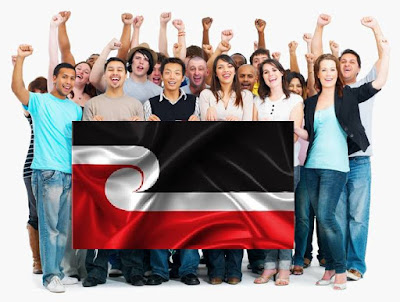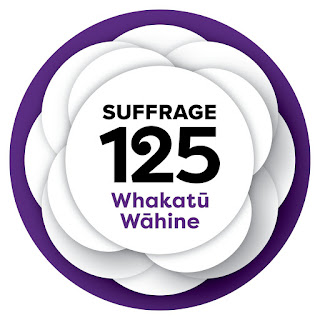Conflicting loyalties: challenging white orientalism and homophobia in diasporic communities
For a long time now, I've thought a lot about the issues with talking about the oppressive stuff in my family and culture in a white-dominated context that constructs non-western cultures as more oppressive, inferior and generally more backward or authoritarian. Having worked with young women from Asian, Middle Eastern and African backgrounds coming out of family violence situations, there's quite common response of internalised racism. In these cases, resulting from trauma. This dilemma between challenging orientalist and racist ideas that present non-western cultures as more oppressive and challenging the very real oppressions that affect me directly in my own family is a really hard one to straddle and difficult to know how to talk about it publicly without painting my family or all Chinese people as sexist or homophobic, or more so than the dominant Pakeha culture.
I recently came out to my parents as queer, not directly using that term but indicating that I'm not heterosexual. My parents are also Christians, my mum doesn't just think it's sinful to be sleeping with women but that I have a mental illness and I need 'treatment'. She claims that according to the internet that 70% of homosexuals are fake and can be cured from such disease. She also keeps repeatedly asking me whether I think of myself as male and pressures me to grow my hair long and dress more feminine. After I came out, I went home the next weekend and she had taken out all these old photos of me from intermediate school where I had long hair and wore dresses just to remind me that I am a GIRL. I don't think I can even begin to try to explain what genderqueer means. I asked, so what if I do think of myself as male and she said that's also a mental illness and that I'll need to be cured from it. It's not normal. Apparently if we didn't leave China, I would not be queer, it's a white people thing.
On the other side, if I'm having issues in my queer relationship with my white partner the discourse my mum uses is that same-gender relationships just don't work and aren't supposed to work. Find a (Chinese) man, get married and have babies like she did. You don't have to love him to begin with but you will grow to love him. Like my mum did, apparently. It's like if you're queer and there's problems in your relationship it's because you're queer and the solution is to be heterosexual. If you're Chinese and there's problems with your family it's because Chinese culture is just more conservative or backward and the solution is to distance yourself away from it or try to assimilate into Pakeha culture. It shouldn't have to be like this.
I think there's a lot of issues involved and I don't really know where to start to begin articulating them. There are tensions between ethnic loyalty under conditions of racism and eurocentrism where your culture/people is considered more homophobic or sexist if you talk about those kinds of oppressions in among people of your ethnicity. They then become marked as "cultural" oppression. When this oppression is talked about in Pakeha culture they're considered "structural" oppression, because Pakeha apparently don't have culture (but have structures, lot of them, hierarchical ones). I don't know how many times Pakeha people have expressed this "I don't have a culture" sentiment. As Marilyn Strathern said, "the nice thing about culture is that everyone has it". It's just fucking invisible to you because you're part of the dominant culture. Then also with diasporic experiences, your family is usually your first point of understanding of your cultural background and however your family operates becomes a characteristic you might attribute to 'your' culture. I can see that slippery slope towards internalised racism when violence is added in there in the context of wider societal racism that makes your culture seem more backward anyway. But that distinction between "cultural" and "structural" oppression is interesting, with "cultural" oppression as a problem with this thing called "culture" and for that oppression to stop, the culture must change. With "structural" oppression, it's the structure that has to change. Maybe we need to talk about "structural" oppression within all cultures or use "cultural" oppression universally including the dominant one because oppression justified and exercised through cultural hegemony especially in the dominant culture.
I hate that super annoying framing of having to choose between anti-racism and queer feminism. In a dominant white context it just makes it fucking hard to talk about. How do you address these forms of oppression that may be culturally specific in a diasporic context without adding fuel to racism and colonial feminism? How do you unlearn internalised racism when that's been a response to trauma? How do you explain this shit to white people without feeling like you're providing evidence that their culture less problematic and being a 'victim' that needs them to save and protect?
At the axes of multiple structural yuckness, we gotta figure out a way of combating oppression intersectionally without undermining other shit that's important to us. That context of Pakeha cultural supremacy that adds a dense fog to the rough terrain that's already hard to walk and navigate. But we can't let it get in the way of where we need to go. We have to figure this out together.
I recently came out to my parents as queer, not directly using that term but indicating that I'm not heterosexual. My parents are also Christians, my mum doesn't just think it's sinful to be sleeping with women but that I have a mental illness and I need 'treatment'. She claims that according to the internet that 70% of homosexuals are fake and can be cured from such disease. She also keeps repeatedly asking me whether I think of myself as male and pressures me to grow my hair long and dress more feminine. After I came out, I went home the next weekend and she had taken out all these old photos of me from intermediate school where I had long hair and wore dresses just to remind me that I am a GIRL. I don't think I can even begin to try to explain what genderqueer means. I asked, so what if I do think of myself as male and she said that's also a mental illness and that I'll need to be cured from it. It's not normal. Apparently if we didn't leave China, I would not be queer, it's a white people thing.
On the other side, if I'm having issues in my queer relationship with my white partner the discourse my mum uses is that same-gender relationships just don't work and aren't supposed to work. Find a (Chinese) man, get married and have babies like she did. You don't have to love him to begin with but you will grow to love him. Like my mum did, apparently. It's like if you're queer and there's problems in your relationship it's because you're queer and the solution is to be heterosexual. If you're Chinese and there's problems with your family it's because Chinese culture is just more conservative or backward and the solution is to distance yourself away from it or try to assimilate into Pakeha culture. It shouldn't have to be like this.
I think there's a lot of issues involved and I don't really know where to start to begin articulating them. There are tensions between ethnic loyalty under conditions of racism and eurocentrism where your culture/people is considered more homophobic or sexist if you talk about those kinds of oppressions in among people of your ethnicity. They then become marked as "cultural" oppression. When this oppression is talked about in Pakeha culture they're considered "structural" oppression, because Pakeha apparently don't have culture (but have structures, lot of them, hierarchical ones). I don't know how many times Pakeha people have expressed this "I don't have a culture" sentiment. As Marilyn Strathern said, "the nice thing about culture is that everyone has it". It's just fucking invisible to you because you're part of the dominant culture. Then also with diasporic experiences, your family is usually your first point of understanding of your cultural background and however your family operates becomes a characteristic you might attribute to 'your' culture. I can see that slippery slope towards internalised racism when violence is added in there in the context of wider societal racism that makes your culture seem more backward anyway. But that distinction between "cultural" and "structural" oppression is interesting, with "cultural" oppression as a problem with this thing called "culture" and for that oppression to stop, the culture must change. With "structural" oppression, it's the structure that has to change. Maybe we need to talk about "structural" oppression within all cultures or use "cultural" oppression universally including the dominant one because oppression justified and exercised through cultural hegemony especially in the dominant culture.
I hate that super annoying framing of having to choose between anti-racism and queer feminism. In a dominant white context it just makes it fucking hard to talk about. How do you address these forms of oppression that may be culturally specific in a diasporic context without adding fuel to racism and colonial feminism? How do you unlearn internalised racism when that's been a response to trauma? How do you explain this shit to white people without feeling like you're providing evidence that their culture less problematic and being a 'victim' that needs them to save and protect?
At the axes of multiple structural yuckness, we gotta figure out a way of combating oppression intersectionally without undermining other shit that's important to us. That context of Pakeha cultural supremacy that adds a dense fog to the rough terrain that's already hard to walk and navigate. But we can't let it get in the way of where we need to go. We have to figure this out together.


Comments
Post a Comment